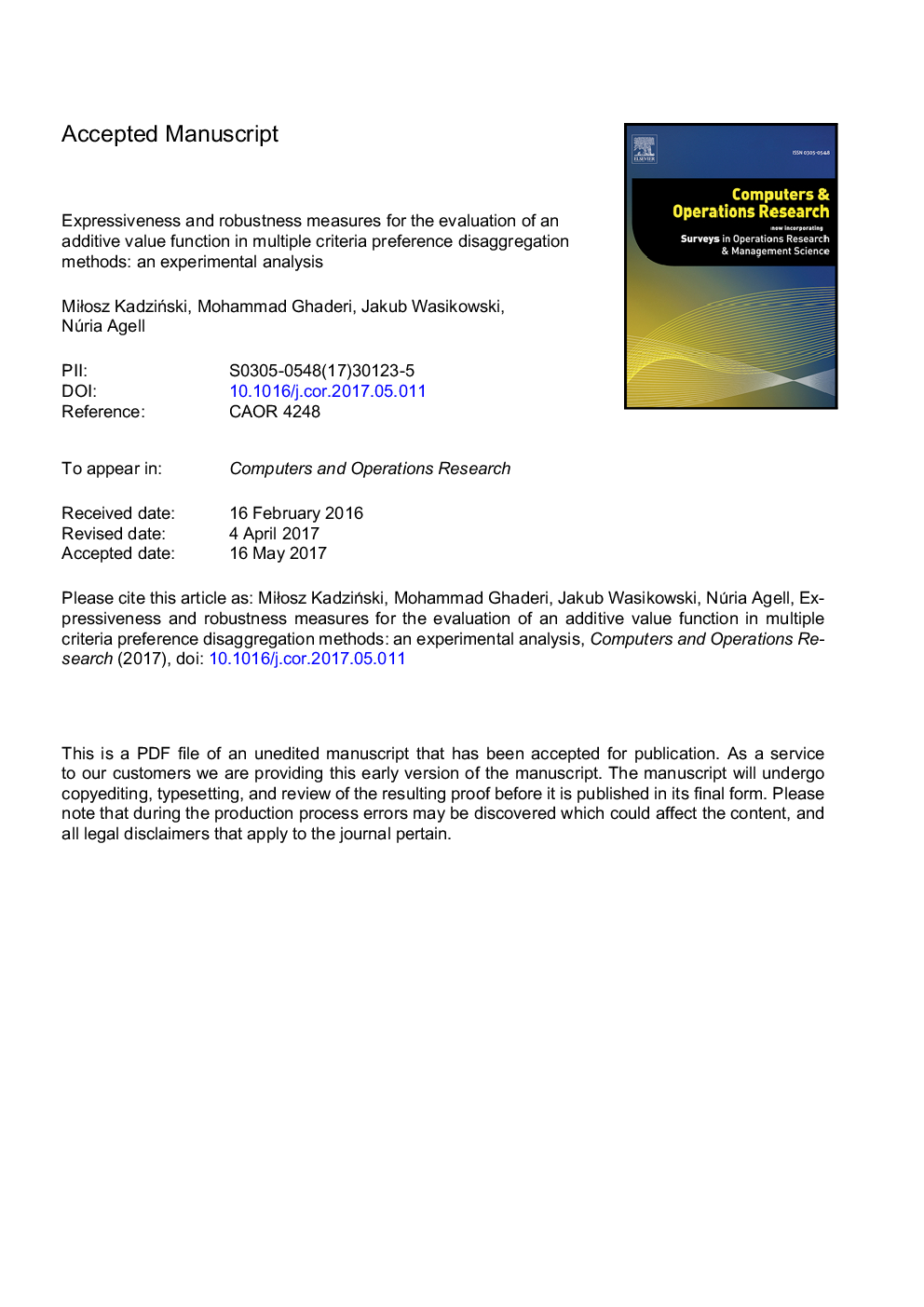| Article ID | Journal | Published Year | Pages | File Type |
|---|---|---|---|---|
| 4958990 | Computers & Operations Research | 2017 | 36 Pages |
Abstract
An additive value function is one of the prevailing preference models in Multiple Criteria Decision Aiding (MCDA). Its indirect elicitation through pairwise questions is often applied due to lowering the cognitive effort on the part of a Decision Maker (DM). AÂ practical usefulness of this approach is influenced by both expressiveness of the assumed model and robustness of the recommendation computed with its use. We experimentally evaluate the above characteristics in view of using an additive value function in the preference disaggregation context. The simulation results are quantified with the following four measures: (1) the share of decision scenarios for which a set of compatible value functions is non-empty, (2) the minimal difference between comprehensive values of reference alternatives compared pairwise by the DM, (3) the number of pairs of alternatives for which the necessary preference relation confirmed by all compatible functions holds, and (4)Â the number of non-trivial certain inferences which cannot be derived directly from the preference information. We discuss how these measures are influenced by the settings with different numbers of alternatives, criteria, pairwise comparisons, and performance distributions. We also study how the results change when applying various procedures for selection of the characteristic points which define the shape of per-criterion marginal value functions. In this regard, we compare four existing discretization algorithms with a new supervised technique proposed in this paper. Overall, we indicate that expressiveness and robustness are contradictory objectives, and a compromise between them needs to be reached to increase the usefulness of an additive value model in the preference disaggregation methods.
Keywords
Related Topics
Physical Sciences and Engineering
Computer Science
Computer Science (General)
Authors
MiÅosz KadziÅski, Mohammad Ghaderi, Jakub WÄ
sikowski, Núria Agell,
